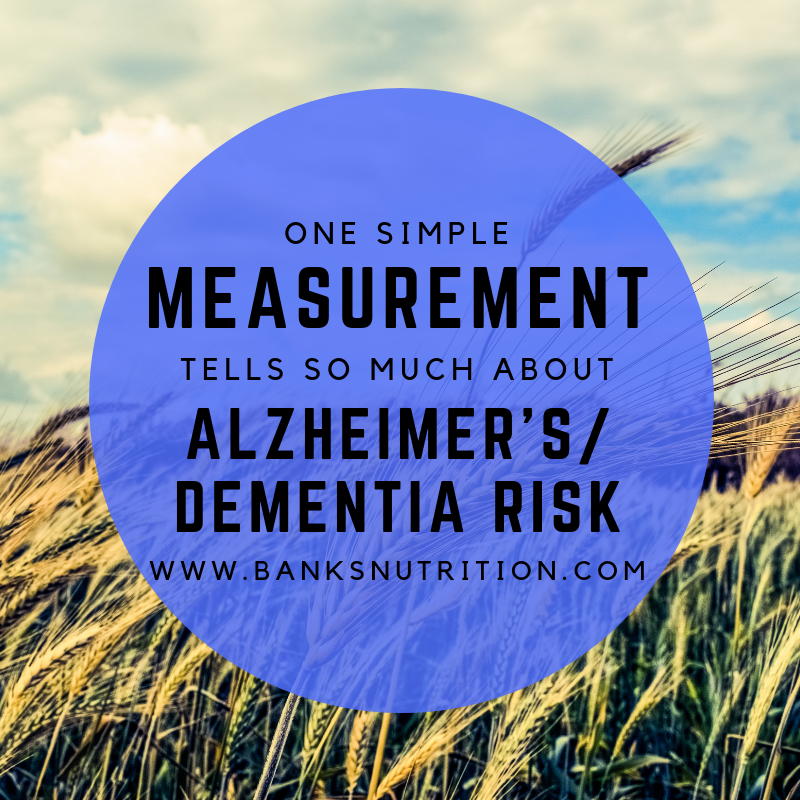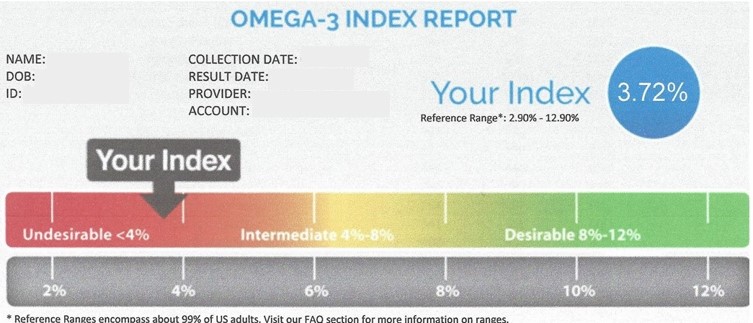
One Simple Measurement Tells So Much About Alzheimer’s/Dementia Risk
July 25, 2018
-
Lifestyle and diet changes can help prevent and reduce the risk of Alzheimer’s
-
A study of 720 adults looking at the relationship between this measurement and risk of Alzheimer’s or dementia found that those with cell membrane levels of less than 5.7% had a striking 77% increased risk compared to those with levels >7.0%
-
The omega-3 index is an important test to guide an Alzheimer’s disease prevention program
An important observation from the research on Alzheimer’s disease has been that early or preventative changes in diet and lifestyle related factors are able to importantly reduce disease risk. An example of such a change is obtaining optimal cell membrane levels of omega-3 fatty acids.
The omega-3 fatty acids in the cell membrane are used by the cell to produce inflammation reducing substances that also maintain cell repair. The cell membrane is the “storeroom” for these anti-inflammatory and reparative lipids. Ongoing brain cell damage by inflammation is a major driving mechanism in Alzheimer’s and other dementias.
A recent study of 720 adults looking at the relationship between this measurement and risk of Alzheimer’s or dementia found that those with cell membrane levels of less than 5.7% had a striking 77% increased risk compared to those with levels >7.0%. Cell membrane omega-3 levels were measured in red blood cells obtained by a simple finger prick sample.
The impact of the risk implications for U.S. adults is significant. The average cell membrane level in this population is 3.5% based on observation from one of the largest testing companies. Cell membrane omega-3 levels are typically restored in 3-4 months with supplementation levels guided by the test result.
The omega-3 index is an important test to guide an Alzheimer’s disease prevention program. There are other pieces to the disease puzzle, but this is an important one that is fairly simple to do.
Lukaschek et al. Cognitive Impairment Is Associated with a Low Omega-3 Index in the Elderly: Results from the KORA-Age Study. Dement Geriatr Cogn Disord. 2016;42(3-4):236-245.
